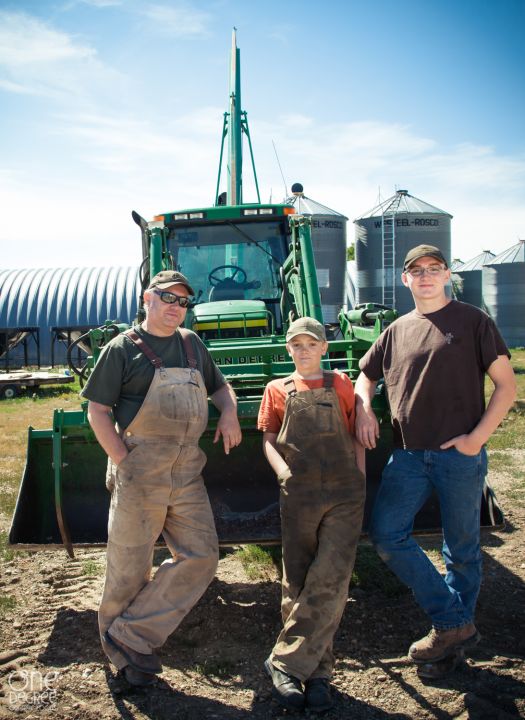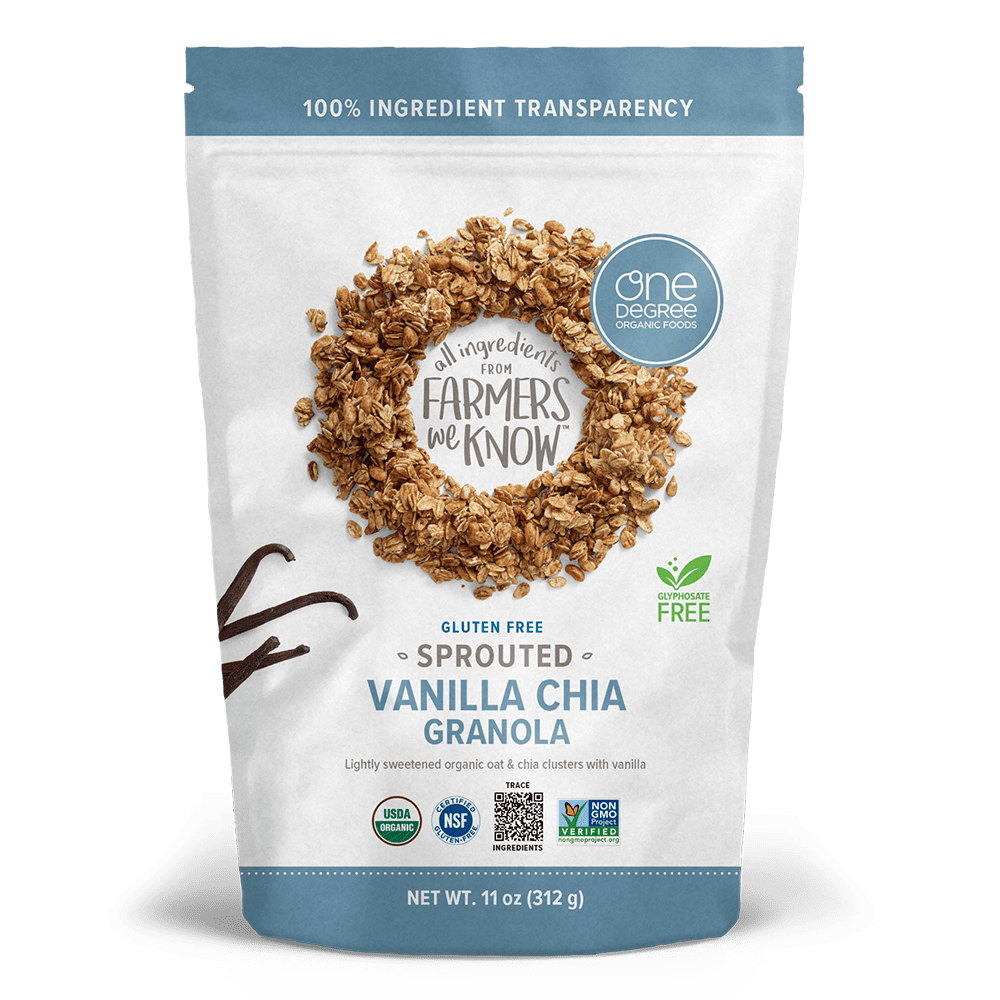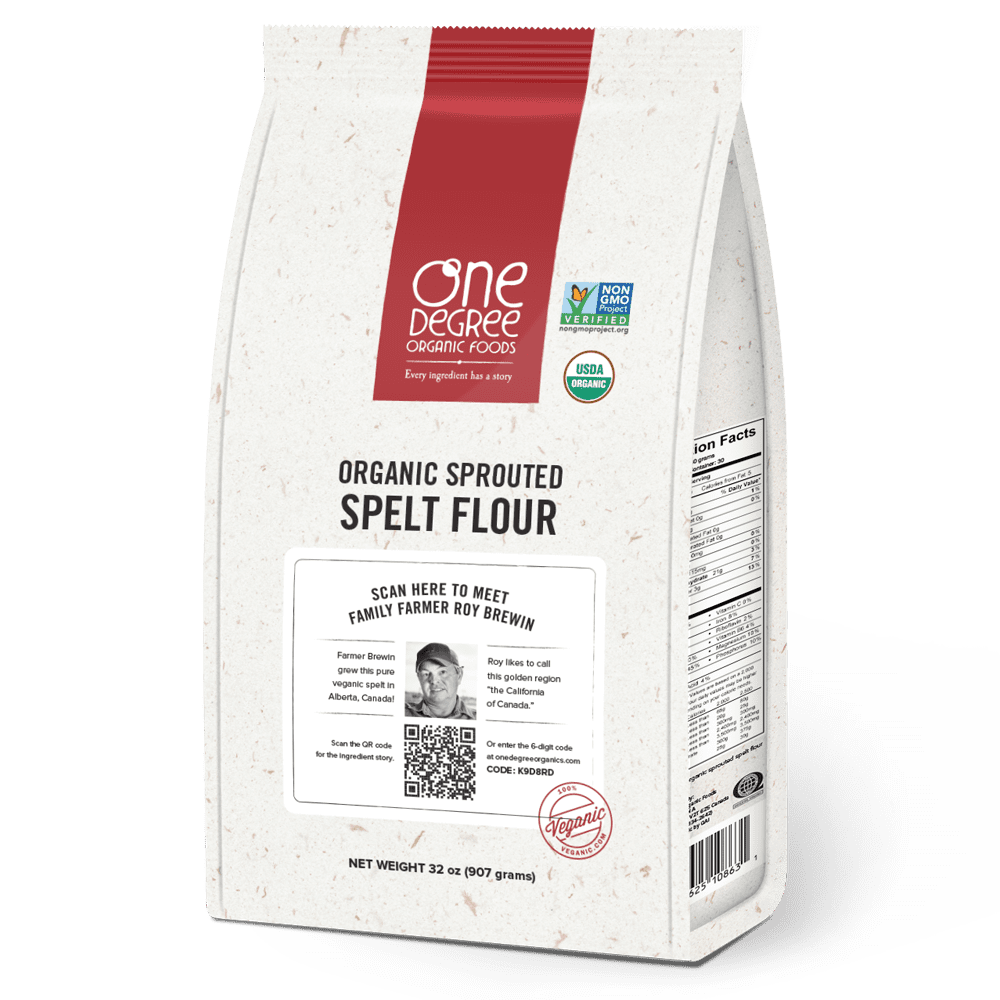Wheat
Grace Hill Farms
“A good man leaves an inheritance to his children’s children.” The verse from Proverbs is a favorite one of Dwayne Smith, whose moral vision never loses sight of his children’s future, nor the future of the land he cultivates, as he builds a magnificent legacy centered on sustainable, respectful organic farming.
Dwayne is the faithful steward of nearly 10,000 acres on the Canadian plains. The land, stretching 20 miles in each direction, is tucked into the southwestern corner of Saskatchewan near the towns of Mankota, Kincaid, Glentworth and Pinto Creek. For visitors unfamiliar with those urban centers, Dwayne uses Canada’s ubiquitous donut/diner franchise as a guidepost to illustrate the comparative remoteness: “So recently we’ve begun to explain that we’re an hour and a half away from a Tim Hortons, and that’s quite shocking to some people,” he chuckles.
The landscape is golden with wheat — khorasan, durum, hard red and soft white wheat. Sharing the immense space are barley, rye, cloves, lentils, yellow peas and flax, along with communities of gophers, badgers, skunks, deer, antelope, colorful birds and less vividly costumed burrowing owls.
“There’s wildlife habitat there for any wildlife that chooses it,” says Dwayne. “We want to farm in such a way to not infringe on their ability to exist here too.” The attitude reflects one of his core values: sustainability. More than seven percent of the land is reserved as a natural habitat, earning the farm a prized Bio Suisse certification.
Values are at the heart of Dwayne’s approach to farming. “Our guiding philosophy is sow good seeds,” he explains. “We think that we not only need to sow good seeds in the spring when we are planting crops, but it’s also a metaphor for life. It’s important for us to be able to sow good will and reap good will.
“To me things need to make sense from one end to the other. And I think that [with our farm] we’ve found an opportunity where this fits with our life goals, our sense of responsibility to the land, our family goals; it’s a really sound fit for us to farm organically.”
Grace Hill is a family business in the truest sense. As much as Dwayne and wife Doreen work hard to be great farmers, their absolute priority is to be great parents. Beginning early, daughter Moriah and sons Holt, Hart and Haden have been taught invaluable lessons of responsibility, stewardship and character by helping out on the farm. Thirteen-year-old Haden already plays a key role. “My job is to make sure that the combines keep moving,” he notes excitedly. “If the combines aren’t moving, then everything is stopped. So if they break down or they need to be dumped, I need to go and find them and do whatever we need to do.”
Haden still remembers the day he took the wheel of a tractor. He was 5. “Dad was in the driver’s seat” but needed to calibrate the tractor’s drill. Haden’s assignment was to keep the moving tractor from falling into a ditch. “I just kept my hand on the steering wheel,” he recalls, “and thought, ‘Yes!’”
Today he’s an expert at driving grain carts and the whole fleet of tractors. “My favorite is Dad’s tractor, because it’s the biggest,” he says with a grin.
Holt, the eldest son, earned a machinist certificate from Saskatchewan Polytechnic last fall, and is now working toward a journeyman certification. “Hart and Haden are also interested in achieving a journeyman’s designation at the appropriate time,” says Dwayne. “Hart is interested in welding and Haden is interested in heavy duty mechanics.”
Not surprisingly, the boys have a strong interest in making farming their life’s work. “They’re already scheming how they’re going to make the farm bigger and better, so it’s kind of exciting to see. Sometimes the ideas are good and we use them here. The imagination of a 12- or 13-year-old is something to behold,” the proud father laughs.
“It’s a good place for kids to be able to grow up and to learn stuff; they have lots of space here. We learn stuff in the shop and are able to learn lessons out in the field. There’s all kinds of exposure to life that you can have here. We look forward to having grandkids here someday.”
For more than a hundred years, farming has been a deeply rooted family tradition. In 1912 Dwayne’s great-uncle established a farming homestead northeast of Vulcan, Alberta. At about the same time, Doreen’s great-grandfather began farming at his homestead near Mankota.
In 2001 some of Doreen’s ancestral land became part of Grace Hill. That was the year the Smith family decided to relocate from Alberta. “We were farming about 70 miles outside Calgary and getting some city pressure where we were farming,” Dwayne explains. “We sold our 800 acres and bought four times that much in Saskatchewan. It was a growth initiative for us.”
For Dwayne, growth has a moral component in addition to the obvious business imperative. He feels especially satisfied when he is able to purchase adjacent conventional land and transform it. Each such acquisition is a victory for nature, sustainability and ultimately the consumer. “We’ll continue to convert more conventional ground to organic,” he promises. “We’re kind of excited to do that.”
Just as organic farming can liberate the land, it frees farmers to make their own choices, rather than follow a playbook devised by a multinational seed or chemical company. “I’m not sure the path [conventional] agriculture is currently on in the end is going to benefit farmers,” says Dwayne charitably. “This is a path being articulated to farmers by agribusiness; it’s not particularly empowering to farms. This path that we’re on with organic, I think that’s a path that will be a lot more sustainable not only financially but sustainable ethically and in all different kinds of ways. We don’t have to be a captive of technology to put good food on the table.”
With organic farming “we see that this is a system where we have an opportunity to be rewarded as farmers. Farms are primary industries that can create food out of rain and sunlight — use a little bit of seed and have a little bit of space and dirt and harness the rain and sunlight to be able to create food. It’s the ultimate sustainable system; not only can you get food, but when we’re planting our wheat we use the seed and it grows up and we can keep seed from that, and it grows up the next year. That helps us to be sustainable; it helps us to be purposeful about how we treat the ground.”
Healthy, vital soil is part of the legacy Dwayne intends to pass to future generations. It’s one reason he uses plant-based fertilizer and crop rotation to enrich the fields. A typical rotation involves clover, oil seeds, legumes and grains. “Two years out of six we have soil-building years where we typically use sweet clover as a plow-down crop,” he says. “We’ll plant it in the year previous and it’s a biennial so it grows up with the wheat. We can harvest the wheat crop off, and the next year the clover grows very aggressively.
“Sweet clover has the ability to take nitrogen out of the air, which is an energy source for plants, and store it in its roots. So right before these sweet clover plants start to make seeds, we plow them into the ground, and as that plant rots then the nitrogen is released into the soil and the next year we can plant there into a nitrogen-rich environment. The crops respond very well to that environment.”
Out in the fields, among the wheat and clover, Dwayne can see 30 miles in every direction from the cabin of his combine. Farming is a marathon, he sometimes likes to say, but as the combine lumbers down rows of golden grain, it is the clear direction and calm moral steadiness that are the truly lasting images. As we left Grace Hill, the combine was still moving, separating grain from chaff and straw, a small dot on the plains slowly carving a legacy onto the earth. It is easy to imagine that in such quiet moments, its noble captain smiles at the thought of another verse he cherishes:
“And the earth brought forth grass, the herb that yields seed according to its kind, and the tree that yields fruit, whose seed is in itself according to its kind. And God saw that it was good.”
— Charlie Dodge





